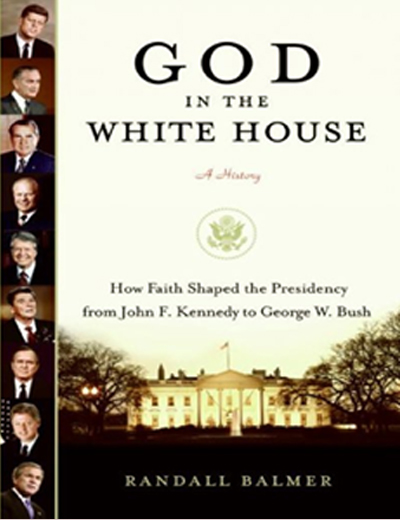
October 27, 2015
Excerpt: God in the White House
January 28, 2008 9:37 AM ET
God in the White HouseA History: How Faith Shaped the Presidency from John F. Kennedy to George W. Bush Hardcover, 243 pages purchase |
George W. Bush's statement on the eve of the Iowa precinct caucuses that Jesus was his favorite philosopher appealed to many evangelical voters as well as to those who believed that the nation was beset by moral decay. By 2004, Americans had come to expect that candidates for the highest office in the land would open their religious beliefs to the scrutiny of voters. The political muscle of the Religious Right, populated overwhelmingly with evangelicals, meant that presidential candidates sought to speak the language of evangelicalism. Jimmy Carter's declaration in 1976 that he was a "born again" Christian had simultaneously energized evangelicals and sent every journalist in New York to his Rolodex to figure out what in the world he meant. By 2004, the language of "born again" had become a commonplace on the presidential campaign trail.
How different from 1960. John F. Kennedy, trying to dislodge the Protestant establishment, which took faith for granted so long as it was some form of Protestant faith, counseled Americans to disregard a candidate's religion when they entered the voting booth. Other issues were far more important, he argued, and besides, the Constitution explicitly prohibited a religious test for office and ensured the separation of church and state. Americans, by a very narrow margin, elected Kennedy to the presidency; his arguments apparently were persuasive to enough voters to overcome previous biases against Roman Catholicism.
Kennedy's case against considerations of faith as a criterion for voting prevailed through the ensuing three presidential elections: 1964, 1968, and 1972. To cite one example of this disregard for candidates' religion, the leading contender for the Republican nomination in 1968 was the governor of Michigan, George Romney, a Mormon. His religion simply did not enter into the political calculus; instead, Romney stumbled politically among primary voters when he declared that he had been "brainwashed" about Vietnam.
Click on Link:
http://www.npr.org/templates/story/story.php?storyId=18429953







